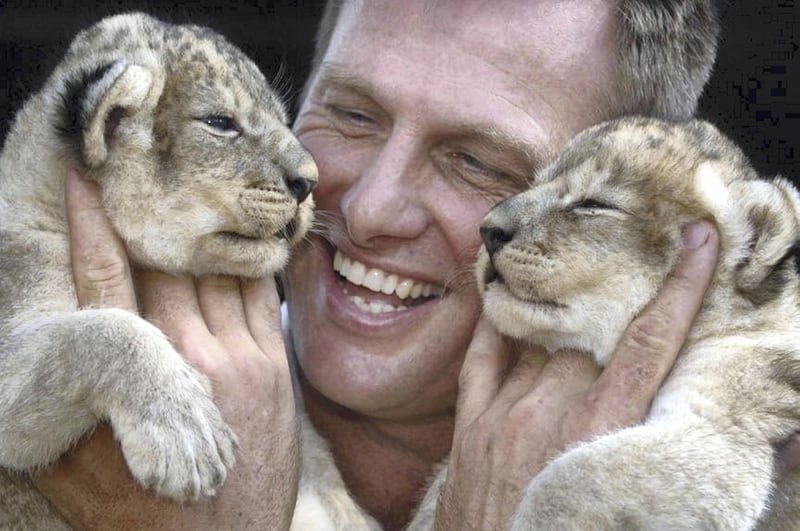Cheetahs sold on the black market for as little as US$2,500 (Dh9,000) are placing the species at risk of dying out unless tighter measures to control illegal trafficking are enforced.
Wild animal experts who source endangered species for zoos and safari parks to help preserve their future and educate the public said that most cheetahs die during the smuggling process.
Tim Husband, technical director of Dubai Safari, said cheetahs are the “supermodels” of the animal kingdom but are fragile and can be notoriously hard to care for in captivity.
“The biggest problem with the smuggling of cheetahs is that 75 per cent or so die in transit, or soon afterwards,” he said.
“The traffickers do not want to smuggle adults as they take up too much room, so go after juveniles.
“Most are pulled from their mothers far too young, and end up starving to death. Some go in to shock and everything just closes down.”
_______________
Read more:
[ Big cats continue to be sold in UAE via social media despite federal law ]
[ Enforcement of exotic animal laws goes hand-in-hand with education ]
[ Sanctuaries in Africa offer to take exotic pets from UAE following amnesty ]
_______________
Mr Husband said common tactics by traffickers to avoid detection were providing only tiny holes in transit crates, which can lead to the young cats suffocating.
He has also seen evidence of smugglers throwing the cats live pigeons to feed on but without a learned hunting behaviour acquired in the wild, young cats often starve to death.
Another crisis facing cheetahs is how to protect pure breeds of the species, as many illegal breeders bypass international stud books and put related animals together, which can cause genetic kidney problems.
Most are taken from the wild in Africa, and many are destined for the Middle East.
Those that do make it here, to private collections, are often fed the wrong diet by their “owners”, who have little knowledge of the complex diet required for survival.
Dubai Safari is establishing a large quarantine area where owners of cheetahs in the UAE can hand over their cats to a place where they will receive the best care possible, in purpose-built enclosures. It is due to open this year.
Reputable, licensed traders are used by ethical zoos to stock up with animals, with legal cheetah sales costing up to US$25,000 (Dh92,000). However, Mr Husband said it can be a murky industry.
“If you have money, it is possible to pay people off so you don’t get caught trafficking these cats or fuelling the trade itself,” he said.
“Animals are rarely confiscated from the very rich.
“It would be good if the penalties were stronger. Don’t go after the guy who is catching the animals in the wild and trying to feed his family but the traders who are buying them.
“If you get rid of the middle man you will help destroy the market. That begins with proper enforcement of international law.
“It has to be stronger than it is, it’s a bit of a toothless tiger.”







